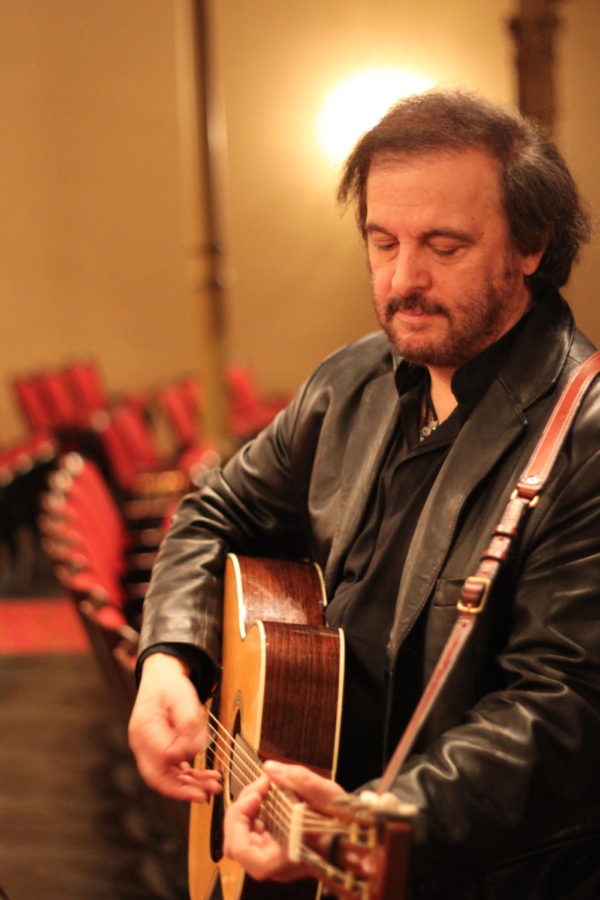Michael Johnathon sends ‘gentle protest’ to music industry by recording his latest album on iPhone
February 27, 2016
As technology progresses, traditional art is bound to suffer.
That is the premise of Kentucky-based folk artist Michael Johnathon’s twelfth album, “Songfarmer: Pickin’ & Peckin’ on a Porch,” the first nationally known album to be completely recorded and mastered on an iPhone. “Songfarmer” will be officially released in spring 2016, according to Johnathon’s website, but is already available online.
Disheartened by the trend of digitally distributed music, Johnathon intended “Songfarmer” to be a “gentle protest” of technology’s destruction of the audio engineering field and the way music is often heard on smartphones rather than on physical copies.
“If this is how the world is going to listen to the album, why don’t I record it that way?” Johnathan said.
Inspired by the organic sound of 1950s and 1960s folk music, Johnathon, armed with his guitar, banjo, Apogee Quartet device, Ear Trumpet microphones and iPhone 6 Plus, began his project in his rural cabin in the late summer of 2015.
Using the Apogee MetaRecorder apps, he recorded “Songfarmer,” and introduced the Woodsongs Front Porch Association. The WPFA consists of members called “songfarmers.” A songfarmer is “is an artist who uses their music to make their families, their hometowns, their careers better,” according to songfarmers.org.
Johnathon, creator and host of the “Woodsongs Old-Time Radio Hour,” has been a full-time musician for 32 years. In that time, he’s witnessed the peak and fall of the recording industry, including the loss of artistry involved in the engineering process. While Johnathon admits the recording process was simple, the album was intended as a warning to other artists.
“I’m a musical fireman. Firemen start fires to stop fires. I’m using this (album) as a way to say, ‘This is where it’s going, and it’s not necessarily a good idea,’” Johnathon said.
“Music is made up of a holy trinity: a great artist, a great song and a great audience,” Johnathon said. “Sometimes technology interferes with that trinity of art.”































































































































































